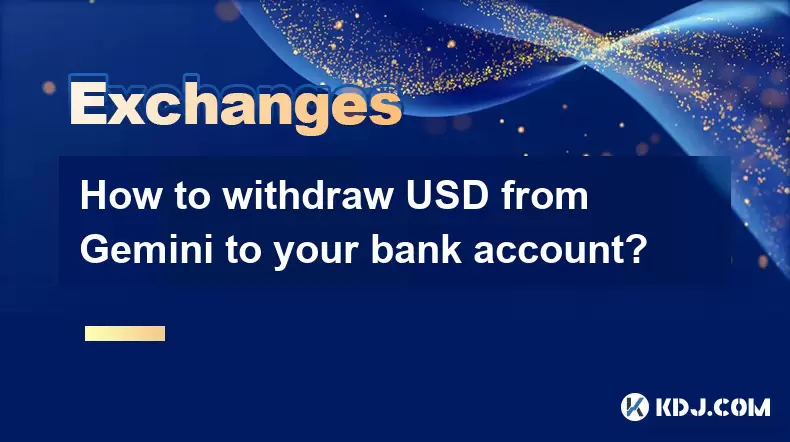-
 Bitcoin
Bitcoin $115000
0.12% -
 Ethereum
Ethereum $3701
4.50% -
 XRP
XRP $3.081
2.99% -
 Tether USDt
Tether USDt $0.0000
-0.01% -
 BNB
BNB $767.9
1.45% -
 Solana
Solana $169.5
3.13% -
 USDC
USDC $0.9999
0.01% -
 Dogecoin
Dogecoin $0.2106
4.30% -
 TRON
TRON $0.3334
1.62% -
 Cardano
Cardano $0.7564
2.54% -
 Stellar
Stellar $0.4165
0.76% -
 Hyperliquid
Hyperliquid $38.75
0.25% -
 Sui
Sui $3.593
3.00% -
 Chainlink
Chainlink $17.08
3.59% -
 Bitcoin Cash
Bitcoin Cash $573.6
4.35% -
 Hedera
Hedera $0.2508
-0.84% -
 Avalanche
Avalanche $23.07
6.46% -
 Ethena USDe
Ethena USDe $1.001
-0.02% -
 Litecoin
Litecoin $120.8
8.17% -
 UNUS SED LEO
UNUS SED LEO $8.943
-0.32% -
 Toncoin
Toncoin $3.400
-5.60% -
 Shiba Inu
Shiba Inu $0.00001255
1.54% -
 Uniswap
Uniswap $9.908
6.32% -
 Polkadot
Polkadot $3.718
2.10% -
 Monero
Monero $303.0
-0.74% -
 Dai
Dai $0.9999
-0.02% -
 Bitget Token
Bitget Token $4.392
0.91% -
 Cronos
Cronos $0.1403
6.31% -
 Pepe
Pepe $0.00001076
1.13% -
 Aave
Aave $267.2
1.80%
How to calculate Coinbase fees? Detailed description of transaction fees
Coinbase charges trading and network fees; standard fees are 1.49% for bank transfers, while Coinbase Pro uses a maker-taker model ranging from 0.00% to 0.50%.
Jun 12, 2025 at 11:49 am

Understanding how to calculate Coinbase fees is crucial for anyone using the platform to buy, sell, or trade cryptocurrencies. Coinbase charges fees in several different ways, including transaction fees, deposit and withdrawal fees, and other service fees. In this article, we will focus specifically on transaction fees, providing a detailed description of how these fees are calculated and what factors influence them.
Types of Transaction Fees on Coinbase
Coinbase charges two main types of transaction fees: trading fees and network fees. Trading fees are charged when you buy or sell cryptocurrencies on Coinbase, while network fees are incurred when you move cryptocurrencies on or off the Coinbase platform.
Trading Fees: These are the fees you pay when you make a trade on Coinbase. The fee varies depending on the payment method and the size of the transaction. Coinbase offers different fee structures for its Coinbase Pro platform and its standard Coinbase service.
Network Fees: These fees are associated with the blockchain network used to process your transaction. They are typically paid to miners or validators and are influenced by network congestion and the urgency of the transaction.
How to Calculate Trading Fees on Coinbase
Calculating trading fees on Coinbase involves understanding the fee structure for different payment methods and the specific details of your transaction. Here's how you can calculate your trading fees:
Standard Coinbase Fees: For transactions on the standard Coinbase platform, fees vary based on the payment method. For example, using a bank account or Coinbase wallet typically incurs a fee of around 1.49% for most transactions. Using a credit or debit card can increase this fee to around 3.99%. To calculate your fee, multiply the total transaction amount by the applicable percentage.
Coinbase Pro Fees: Coinbase Pro offers a maker-taker fee model, which is more complex but generally more cost-effective for frequent traders. The fee depends on your 30-day trading volume and whether you are a maker or a taker in the trade. Makers place orders that add liquidity to the market, while takers take liquidity away by fulfilling existing orders. Fees can range from 0.00% to 0.50% for makers and 0.04% to 0.50% for takers.
Example of Calculating Coinbase Trading Fees
Let's walk through an example of calculating trading fees on both the standard Coinbase platform and Coinbase Pro.
Standard Coinbase Example: Suppose you want to buy $100 worth of Bitcoin using a bank account transfer. The fee for this transaction would be $100 * 1.49% = $1.49. So, you would pay a total of $101.49 for your Bitcoin.
Coinbase Pro Example: If you're using Coinbase Pro and you're a maker with a 30-day trading volume of less than $10,000, your maker fee might be 0.50%. If you want to buy $100 worth of Bitcoin, your fee would be $100 * 0.50% = $0.50. So, you would pay a total of $100.50 for your Bitcoin.
How to Calculate Network Fees on Coinbase
Network fees are a bit more complex because they depend on the cryptocurrency you're using and the current state of the blockchain network. Here's how you can calculate network fees:
Bitcoin and Ethereum Network Fees: For Bitcoin and Ethereum transactions, Coinbase sets a default network fee based on current network conditions. You can see this fee before you finalize your transaction. The fee is typically higher during times of high network congestion.
Other Cryptocurrencies: For other cryptocurrencies, the network fee structure can vary. Some cryptocurrencies have fixed fees, while others use a dynamic fee model similar to Bitcoin and Ethereum.
Example of Calculating Network Fees
Let's consider an example of calculating network fees for a Bitcoin withdrawal from Coinbase.
- Bitcoin Withdrawal Example: Suppose you want to withdraw 0.1 BTC from Coinbase to an external wallet. At the time of your transaction, the network fee for Bitcoin withdrawals is 0.0002 BTC. So, you would pay a total of 0.1002 BTC for your withdrawal.
Tips for Minimizing Coinbase Fees
While Coinbase fees are a necessary part of using the platform, there are several strategies you can use to minimize them:
Use Coinbase Pro: If you're an active trader, using Coinbase Pro can significantly reduce your trading fees due to its maker-taker fee model.
Use Bank Transfers: When buying cryptocurrencies on the standard Coinbase platform, using a bank transfer instead of a credit or debit card can reduce your fees.
Batch Transactions: If you're planning to make multiple transactions, consider batching them together to reduce the number of network fees you pay.
Monitor Network Conditions: For withdrawals, keep an eye on network conditions and try to make transactions during times of low congestion to minimize network fees.
Frequently Asked Questions
Q: Can I get a refund on Coinbase fees if I make a mistake?
A: Coinbase does not typically refund fees, but you can contact customer support to discuss any issues with your transactions.
Q: Are there any ways to avoid Coinbase fees entirely?
A: While you can't avoid all fees, using Coinbase Pro and opting for bank transfers can significantly reduce your costs. Additionally, some promotional offers or referral programs may provide fee discounts.
Q: How often do Coinbase fees change?
A: Coinbase fees can change based on various factors, including market conditions and updates to their fee structures. It's a good idea to check the fee page on their website regularly.
Q: Does Coinbase charge fees for holding cryptocurrencies in my account?
A: No, Coinbase does not charge fees for simply holding cryptocurrencies in your account. Fees are only incurred when you make transactions.
Disclaimer:info@kdj.com
The information provided is not trading advice. kdj.com does not assume any responsibility for any investments made based on the information provided in this article. Cryptocurrencies are highly volatile and it is highly recommended that you invest with caution after thorough research!
If you believe that the content used on this website infringes your copyright, please contact us immediately (info@kdj.com) and we will delete it promptly.
- Crypto Airdrops: Your August 2025 Guide to Free Tokens & Opportunities
- 2025-08-05 13:45:13
- Luxury Dining Reimagined: St. Regis Singapore & Marriott's Culinary Celebration
- 2025-08-05 13:45:13
- Fancy Farm Picnic: A Sneak Peek at the 2026 US House Race
- 2025-08-05 13:50:12
- Cardano Price, ADA Forecast & Ethereum Price: What's the Buzz?
- 2025-08-05 13:50:12
- Velo Universe, DEX, and DeFi Security: Navigating the Future of Decentralized Trading
- 2025-08-05 09:25:13
- Bitget Wallet Revolutionizes Solana with Gas-Free Transactions: A New Era for DeFi
- 2025-08-05 09:25:13
Related knowledge

How to set and manage alerts on the Gemini app?
Aug 03,2025 at 11:00am
Understanding the Gemini App Alert SystemThe Gemini app offers users a powerful way to stay informed about their cryptocurrency holdings, price moveme...

How to use the Gemini mobile app to trade on the go?
Aug 04,2025 at 09:14am
Setting Up the Gemini Mobile AppTo begin trading on the go using the Gemini mobile app, the first step is installing the application on your smartphon...

What to do if you forgot your Gemini password?
Aug 04,2025 at 03:42am
Understanding the Role of Passwords in Gemini AccountsWhen using Gemini, a regulated cryptocurrency exchange platform, your password serves as one of ...

What are the websocket feeds available from the Gemini API?
Aug 03,2025 at 07:43pm
Overview of Gemini WebSocket FeedsThe Gemini API provides real-time market data through its WebSocket feeds, enabling developers and traders to receiv...

How to get started with the Gemini API?
Aug 05,2025 at 12:35pm
Understanding the Gemini API and Its PurposeThe Gemini API is a powerful interface provided by the cryptocurrency exchange Gemini, enabling developers...

How to withdraw USD from Gemini to your bank account?
Aug 04,2025 at 11:01am
Understanding Gemini and USD WithdrawalsGemini is a regulated cryptocurrency exchange platform that allows users to buy, sell, trade, and store digita...

How to set and manage alerts on the Gemini app?
Aug 03,2025 at 11:00am
Understanding the Gemini App Alert SystemThe Gemini app offers users a powerful way to stay informed about their cryptocurrency holdings, price moveme...

How to use the Gemini mobile app to trade on the go?
Aug 04,2025 at 09:14am
Setting Up the Gemini Mobile AppTo begin trading on the go using the Gemini mobile app, the first step is installing the application on your smartphon...

What to do if you forgot your Gemini password?
Aug 04,2025 at 03:42am
Understanding the Role of Passwords in Gemini AccountsWhen using Gemini, a regulated cryptocurrency exchange platform, your password serves as one of ...

What are the websocket feeds available from the Gemini API?
Aug 03,2025 at 07:43pm
Overview of Gemini WebSocket FeedsThe Gemini API provides real-time market data through its WebSocket feeds, enabling developers and traders to receiv...

How to get started with the Gemini API?
Aug 05,2025 at 12:35pm
Understanding the Gemini API and Its PurposeThe Gemini API is a powerful interface provided by the cryptocurrency exchange Gemini, enabling developers...

How to withdraw USD from Gemini to your bank account?
Aug 04,2025 at 11:01am
Understanding Gemini and USD WithdrawalsGemini is a regulated cryptocurrency exchange platform that allows users to buy, sell, trade, and store digita...
See all articles

























































































